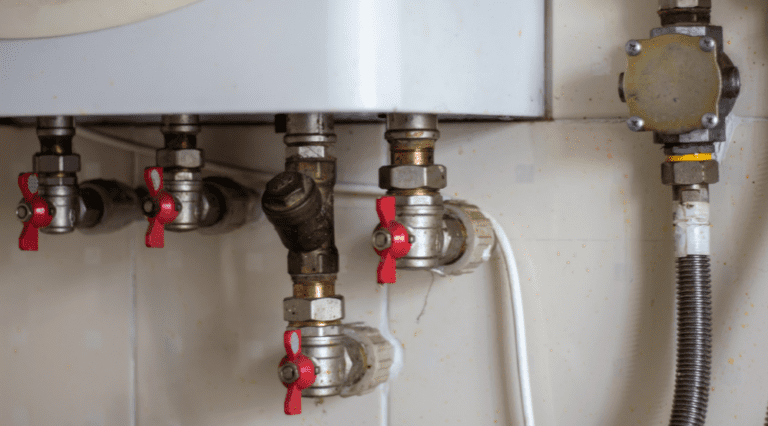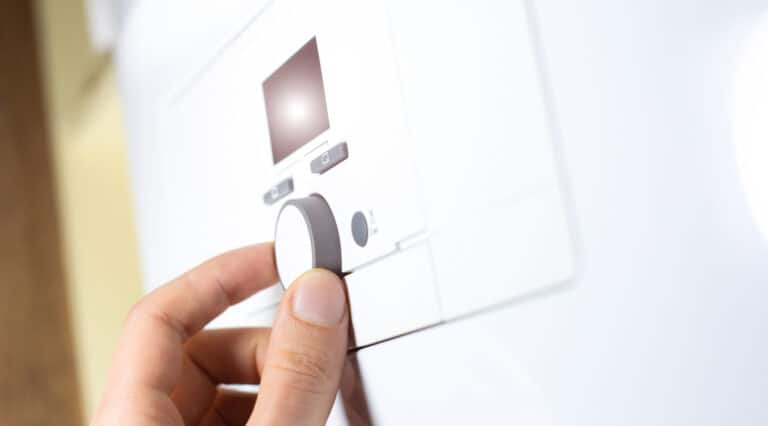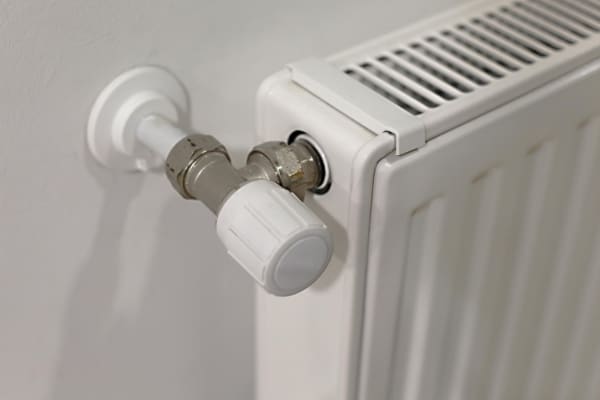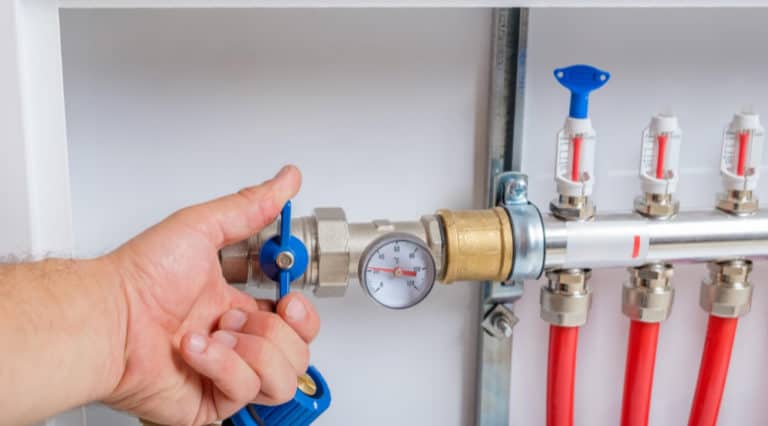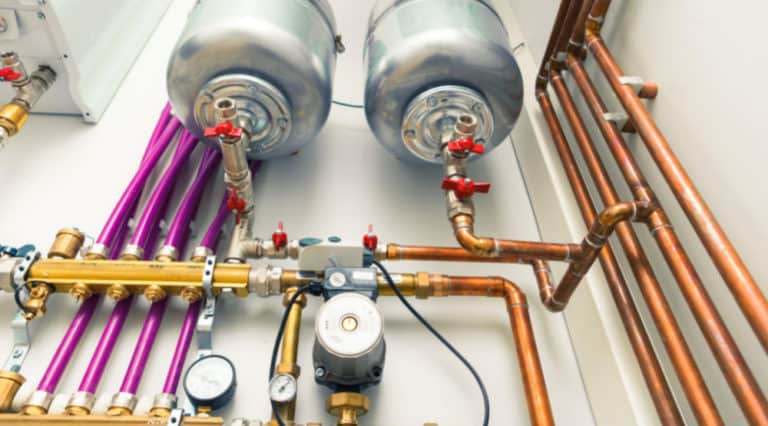Find My Local Expert Why Is My Boiler Making a...
Read More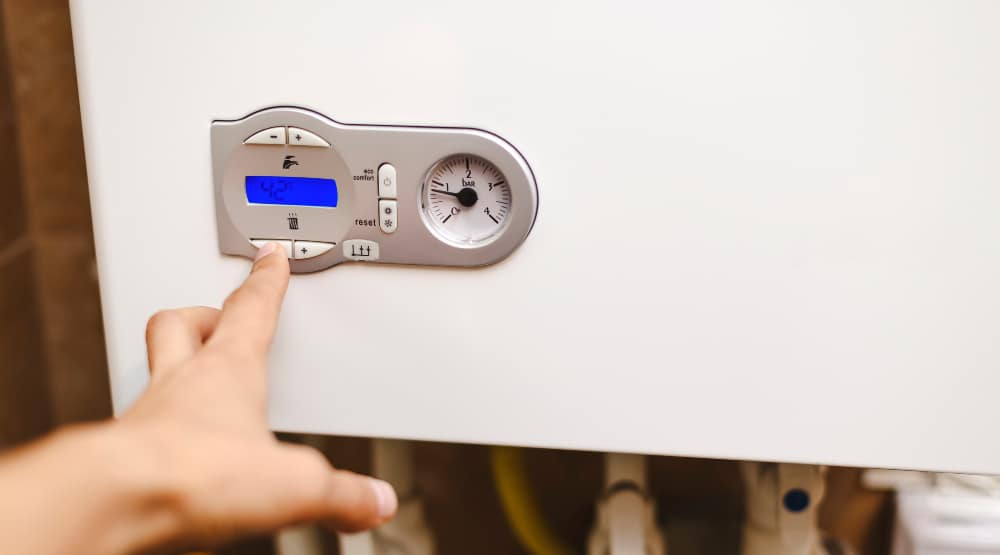
From Cold to Cozy: Proven Solutions for Boiler Problems
You’re doing dishes and suddenly notice that the water isn’t draining from your sink as quickly as it should be. You give it a couple of minutes, but soon realize that your kitchen sink won’t drain. Your first thought might be that something is clogging your pipes, but what if that’s not the case?
Believe it or not, a clog isn’t always the reason why your kitchen sink won’t drain. There are many other factors that could be causing the problem. In this article, we’ll explore some of the common causes of a slow or non-draining kitchen sink and provide you with some solutions to get your sink back to normal.
Common Boiler Problems and Ways to Solve Them
Boilers are essential for keeping our homes warm and providing hot water. However, they can sometimes encounter problems that can leave us without heat or hot water. Here are some of the most common boiler problems and effective solutions to solve them:
1. Noisy Boiler: If your boiler is making unusual sounds such as banging, whistling, or gurgling noises, it could be a sign of underlying issues. Check for air in the system, trapped debris, or a faulty pump seal. Bleeding the radiators and cleaning the system can help resolve these problems.
2. Water Leaks: Boiler leaks can lead to reduced efficiency or even complete breakdown. Inspect the pipes, valves, and radiators for signs of leaks. If you find any, tighten the connections, replace damaged parts, or call a qualified heating engineer for assistance.
3. Low Water Pressure: A drop in water pressure can affect the performance of your boiler. Check the pressure gauge and, if necessary, refill the system via the filling loop. Make sure to check for any underlying issues causing the drop in pressure, such as a faulty valve or a leak.
4. Issues with Boiler Timer: If your boiler timer is not working correctly, it can affect the heating schedule in your home. Try resetting the timer and ensure it is correctly programmed. If the problem persists, consult the boiler’s manual or contact a professional.
By troubleshooting and addressing these common boiler problems, you can ensure that your boiler runs smoothly and efficiently. Remember, if you’re unsure or uncomfortable with any aspect of boiler maintenance or repair, always consult a qualified and boiler engineer for assistance.
Top 7 Common Boiler Problems
Boilers are an essential part of our homes, providing heat and hot water. However, they can sometimes encounter issues that can disrupt their performance. In this article, we will discuss the top 7 most common boiler problems and provide effective solutions to solve them. Whether it’s a noisy boiler, water leaks, low water pressure, issues with the boiler timer, or any other common boiler issue, we have got you covered. So, let’s dive in and explore these problems and their solutions in detail.
#1 Boiler not firing up
Is your boiler not firing up and leaving you without heat and hot water? Don’t worry, there are a few possible reasons for this issue, and most of them can be easily resolved. Here are some troubleshooting steps to help you get your boiler up and running again.
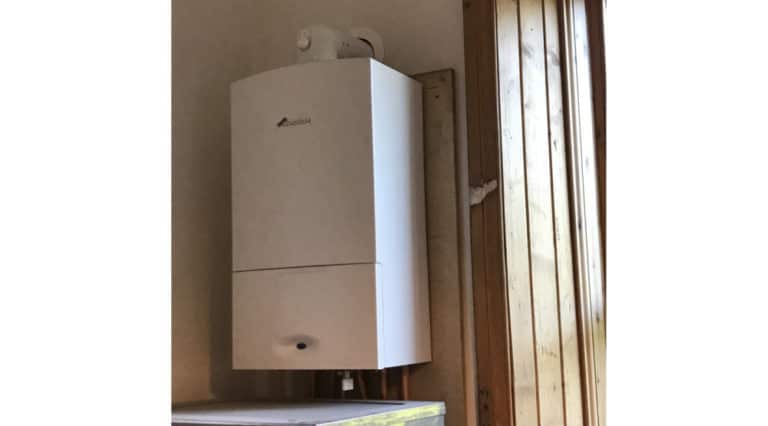
1. Check the gas supply: The first thing you should do is make sure that the gas supply to your boiler is switched on and that the gas pressure is sufficient. If the gas supply is off or the pressure is too low, your boiler won’t fire up.
2. Verify the thermostat settings: Take a look at your thermostat and ensure that it is set correctly and functioning properly. Sometimes, a simple adjustment of the temperature setting can solve the problem.
3. Inspect the power supply: Check if there is power supply to your boiler. Make sure the circuit breaker is not tripped and that the boiler is receiving electricity. Also, check the electrical components inside the boiler to ensure they are not faulty or damaged.
4. Check the pilot light: If you have a gas boiler with a pilot light, inspect it to see if it is lighting up. If the pilot light is out, follow your boiler’s manual for instructions on how to relight it. If the pilot light won’t stay lit, there may be an issue with the ignition system that needs professional attention.
#2 Fuse has tripped
If your boiler suddenly stops working, one possible explanation could be a tripped fuse. When a fuse trips, it interrupts the electrical supply to the boiler, causing it to shut down. So, what could be causing the fuse to trip?
Electrical issues: Faulty components or faulty wiring can cause the fuse to trip. If there is a short circuit or an overload in the electrical system, it can trigger the fuse to trip as a safety measure. It is important to identify and resolve any electrical issues in order to prevent further problems.
Power cuts: Sometimes, a sudden power cut or voltage fluctuation can cause the fuse to trip. When power is restored, the fuse may need to be reset in order for the boiler to function again.
What can you do?
The first step to address a tripped fuse is to check all the fuses in your home’s fuse box. Look for any fuses that are in the “off” position or have a visible break in the wire. If you find any, try resetting them to see if it resolves the issue.
However, if the fuse keeps tripping or you suspect an electrical issue, it is recommended to contact a qualified electrician. They will be able to diagnose and fix any underlying electrical problems to ensure the safe and reliable operation of your boiler.
Remember, safety should always be a priority when dealing with electrical issues. If you are unsure or uncomfortable, it’s best to leave it to the professionals and contact a qualified electrician.
#3 Pilot light's gone out
Has your boiler’s pilot light gone out? Don’t worry, it’s a common issue that can often be fixed easily. Here are the steps to relight a pilot light:
1. Locate the pilot light and gas control knob: The pilot light is a small flame that should be visible near the bottom of your boiler. The gas control knob is usually located nearby and will have different positions labeled, including “Off,” “Pilot,” and “On.”
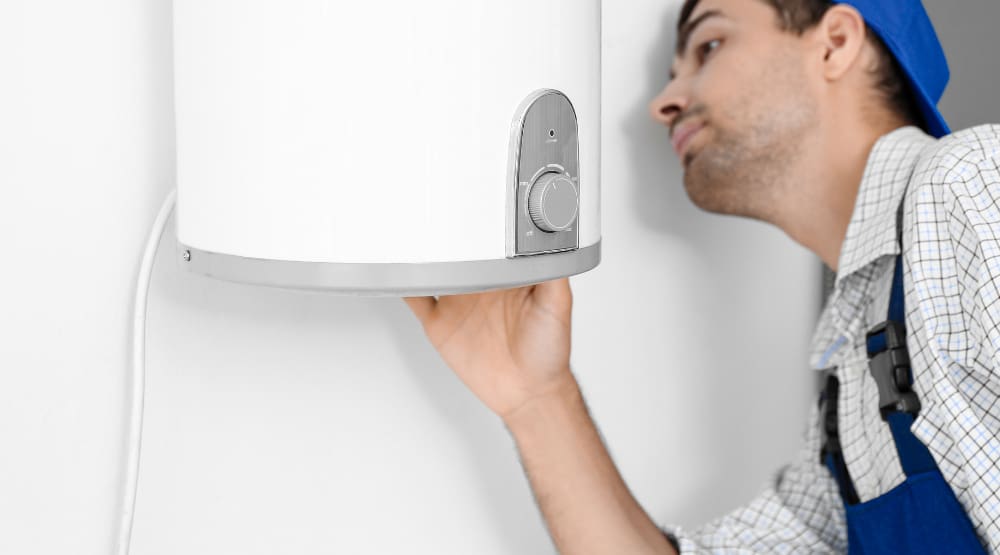
2. Turn the gas control knob to “Off”: This will ensure that no gas is flowing to the pilot light while you relight it. It’s important to be cautious when dealing with gas, so always start by turning the knob to the “Off” position.
3. Wait for at least 5 minutes: This waiting period allows any residual gas to dissipate, reducing the risk of a gas build-up or igniting a potentially dangerous scenario.
4. Turn the gas control knob to “Pilot”: Once the waiting period is over, turn the gas control knob back to the “Pilot” position. This will allow gas to flow to the pilot light once it’s ignited.
5. Ignite the pilot light: Use a long lighter or match to carefully ignite the pilot light. Hold the flame near the pilot light and wait for it to catch. You may need to press a separate button or lever to release gas to the pilot light while igniting it.
6. Hold down the gas control knob: After the pilot light is lit, continue holding down the gas control knob for about 30 seconds. This is important to ensure that the thermocouple, a safety device that detects whether the pilot light is lit, heats up and allows the gas to continue flowing.
If the pilot light remains lit after releasing the gas control knob, you’ve successfully relit it! However, if the pilot light won’t stay lit or you’re unsure about any part of the process, it’s best to contact a qualified heating engineer for assistance. They have the expertise and tools to safely troubleshoot and resolve any issues with your boiler’s pilot light.
#4 Water Leakage
Water leakage in a boiler system can be a common issue and should be addressed promptly to prevent further damage. There are several potential causes of water leakage, including a faulty pressure valve, pump seal, or internal component.
To address water leakage in your boiler system, follow these steps:
1. Turn off the boiler: Safety is paramount. Before investigating the leak, turn off the boiler and ensure it is cool before proceeding.
2. Identify the source of the leak: Inspect the boiler and its components for any visible signs of water leakage. Check the pressure valve, pump seal, and other internal components for any signs of damage or wear.
3. Contact a safe engineer for repairs: Water leakage can be a sign of a more significant underlying issue. It’s crucial to contact a qualified and certified heating engineer who can assess the problem and provide the necessary repairs.
A professional heating engineer will have the expertise to diagnose the exact cause of the water leakage and recommend appropriate solutions. They may need to replace a faulty pressure valve, fix a leaking pump seal, or repair an internal component.
#5 Lower Boiler Pressure
Lower boiler pressure can be a common issue in boiler systems and understanding its causes is important for timely resolution. Some common causes of lower boiler pressure include water leaks, broken valves, or bleeding radiators.
To check if your boiler has lower pressure, look for the built-in pressure gauge. If the needle is below 1, it indicates low boiler pressure.
To address this issue, start by checking for visible water leaks in and around the boiler system. Look for any signs of dripping or wet patches. If you find a leak, it may be necessary to contact a qualified heating engineer for repairs.
If no leaks are visible, you can try resetting the boiler pressure according to the manufacturer’s instructions. This usually involves locating the pressure gauge and adjusting the pressure to the recommended level.
Remember, it’s always best to consult the boiler’s manual or seek the assistance of a professional if you are unsure of how to address the issue.
Dealing with lower boiler pressure promptly can help prevent further complications and ensure your boiler system operates efficiently.
#6 Boiler makes a loud noise when starting
If your boiler is making a loud bang when it fires up, you are not alone. This common issue is often caused by a delayed ignition, which can result in a build-up of gas before ignition and create a banging noise.
To address this issue, you’ll want to focus on the boiler’s ignition system. The first step is to check if the gas flow is smooth and uninterrupted. Ensure that the gas supply valve is fully open and not obstructed in any way.
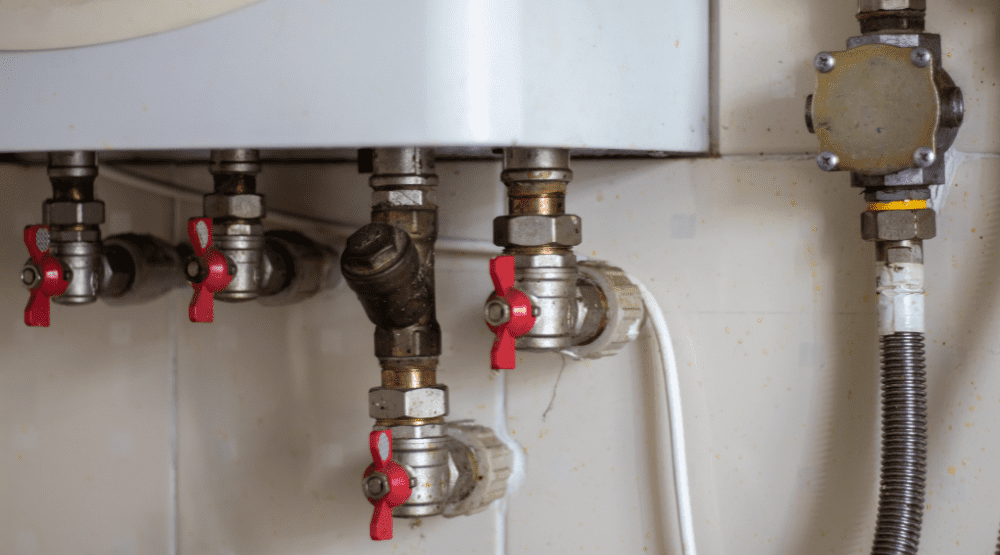
If the gas flow seems normal, the next step is to clean the ignition system. Over time, dirt and debris can accumulate, affecting the system’s performance. You can gently clean the ignition system using a soft brush or compressed air.
If you’re not comfortable cleaning the ignition system yourself, it’s best to seek the help of a qualified heating engineer. They have the expertise to address this issue and ensure your boiler is running safely and efficiently.
#7 Boiler timer has reset
Has your boiler been affected by a power cut? If so, you might notice that the timer has reset to its default settings. Not to worry, though, as resetting the boiler timer is a simple process.
To begin, you’ll need to access the boiler timer. This is usually located on the front panel of the boiler or in a control panel nearby. Once you have located the timer, follow these step-by-step instructions to reset it:
1. Start by turning off the power supply to the boiler. You can do this by turning off the main switch or breaker that controls the boiler.
2. Wait for a few seconds before turning the power supply back on. This will allow the timer to reset fully.
3. Once the power is back on, locate the reset button on the boiler timer. It is usually marked with a symbol or labeled “Reset.”
4. Press and hold the reset button for a few seconds until you see the timer display reset to its default settings.
5. Finally, set the timer to the desired settings for your heating and hot water schedule.
And that’s it! By following these steps, you can easily reset the timer on your boiler after a power cut. If you encounter any difficulties or have any concerns, it’s always recommended to consult the boiler’s manual or contact a qualified heating engineer for assistance.
Don't forget to do these essential checks before giving the engineer a ring!
If you’re experiencing boiler problems, there are a few checks you can perform before calling a heating engineer. These simple steps may help you resolve the issue or provide valuable information for the engineer when they arrive.
1. Gas Supply: First, check if your gas supply is working correctly. Ensure that the gas meter is on and that other gas appliances are functioning properly. If there is a lack of gas supply, your boiler may not be able to ignite.
2. Power Supply: Next, make sure that your boiler has power. Check if the display screen is on and if any lights are illuminated. If it’s not receiving power, check the electrical supply by testing other appliances in the vicinity. If necessary, check the fuse box and reset any tripped switches related to the boiler.
3. Heating Control: Check the thermostat and heating controls to ensure they are set correctly. Make sure the temperature is higher than the current room temperature and that any programming is correct. If there’s an issue with the control settings, it may affect the boiler’s performance.
4. Boiler Pressure: Low boiler pressure can lead to heating and hot water problems. Take a look at the pressure gauge on the boiler; it should show a reading between 1 and 1.5 bar. If it’s below this range, you may need to repressurize the system.
If these checks don’t resolve your boiler problem, it’s time to call a heating engineer. They have the expertise to diagnose and fix more complex issues. Remember, safety should always be a priority, so if you smell gas or suspect a gas leak, immediately turn off the gas supply and contact a qualified professional.
Conclusion
Maintaining a properly functioning boiler is essential to ensuring reliable heating and hot water in your home. By taking a few simple steps to troubleshoot common issues, you may be able to resolve minor problems on your own. However, it’s important to remember that boilers are complex systems, and some issues may require the expertise of a certified heating engineer.
Regular boiler maintenance plays a crucial role in minimizing problems and ensuring optimal performance. It’s recommended to schedule annual servicing to identify and address any underlying issues before they escalate. Not only does this help prevent costly breakdowns, but it can also improve energy efficiency and extend the lifespan of your boiler.
When encountering more complex problems or issues that you’re unsure how to handle, it’s always best to seek the assistance of a professional heating engineer. They have the necessary knowledge and experience to diagnose and resolve any boiler-related issues safely and efficiently.
By investing in regular maintenance and seeking professional help when needed, you can save yourself from unexpected breakdowns and costly repairs. Remember, early intervention is key to avoiding further damage and ensuring the longevity of your boiler system.
Don’t wait until a minor boiler problem becomes a major headache. Call a certified heating engineer and prioritize the maintenance of your boiler to enjoy continuous heating and hot water all year round.
You May Also Like...
Ideal Boiler Flow Temp: Optimizing Your Central Heating Efficiency
Find My Local Expert Ideal Boiler Flow Temp: Optimizing Your...
Read MoreEasy Ways to Bleed and Maintain your Boiler
Find My Local Expert Easy Ways to Bleed and Maintain...
Read MoreBoiler Losing Pressure: Here’s how to fix it!
Find My Local Expert Boiler Losing Pressure? Here’s How to...
Read MoreBaxi Boiler Problems: Diverter Valve
Find My Local Expert Baxi Boiler Problems: Diverter Valve Combi...
Read MoreNeed Help with your Central Heating System?
My Trusted Expert Guarantee
Experts Have Been Vetted & Approved
